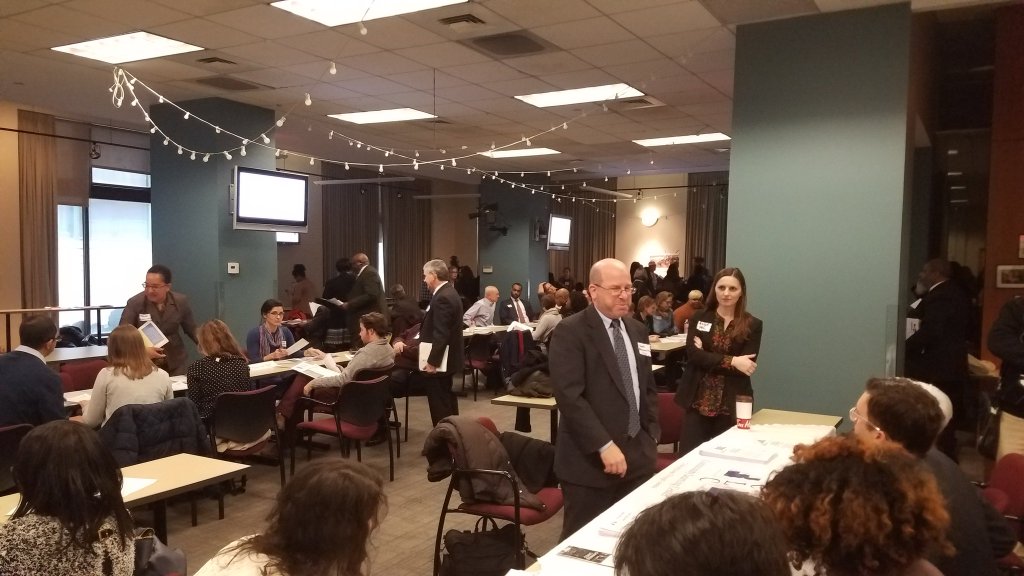The color of a collar: Jeff Abramowitz’s road to reentry
 March 27, 2017
Category: Feature, Featured, Long, People
March 27, 2017
Category: Feature, Featured, Long, People
Jeff Abramowitz is starting to sleep under his covers again. He brushes his teeth with a decent toothbrush. He lays his head on a decent pillow. The faint clamor of keys clattering against a metal ring, however, sometimes keeps complete comfort at bay.
It’s been three years since he last heard them reverberate through United States Penitentiary, Canaan at night, but every now and then, on the brink of slumber, his subconscious will reproduce the sound like some sort of residual haunting, a reminder of the mistakes he made that landed him in Canaan in the first place.
He doesn’t necessarily need any more reminders of his past life. Abramowitz, a former Center City lawyer, was sentenced to five years in federal prison for embezzlement in 2012. That’s what his stubbly gray beard is from. It’s also why he works at Community Learning Center, where, as director of student services, he helps returning citizens obtain the resources and skills they need to successfully re-enter society.
Abramowitz has made sure he’s reminded of his mistakes every day since his release in September of 2015. Not that he’s had much of a choice.
“I lost everything as a result. I lost everything,” Abramowitz said. His career, his finances, his wife of 24 years — indeed, Abramowitz lost everything and everyone who mattered to him with the exception of his daughter, who’s currently living with him until college starts in the fall.
But putting his life back together didn’t just magically happen. His reentry experience began on the first day of his sentence.
“I needed to figure out why I made those mistakes and what I could do to make sure it never happened again,” he said.
He read over a thousand books. He learned how to operate a forklift. He taught GED classes. As the only Jewish inmate, he became “Switzerland” for disgruntled, factional peers.

Jeff Abramowitz presents at a Philadelphia Reentry Coalition gathering as coalition director Aviva Tevah looks on. (Photo by Tony Abraham)
He also learned that the color of his collar didn’t much matter. In USP Canaan, everyone wore the same green suit, ate the same shitty food and tried to sleep through the same sound of a prison guard’s keys as they clamored through the prison corridors.
“When you’re stripped of everything and go behind bars, you’re all the same,” Abramowitz said. “We were no different. Everybody is motivated by different things, but deep down, we’re all good people who need direction.”
Upon release, Abramowitz found Philadelphia’s halfway houses to discriminate even less.
“Every time you need to leave, you need a pass from a case worker. They’re hard to come by and are often the biggest barrier to individuals trying to get a job,” he said.
Abramowitz said he saw countless peers miss job interviews because they couldn’t get a pass to leave the halfway house in time.
At Community Learning Center, Abramowitz is working to make sure returning citizens have access to the resources they require to meet basic needs, obtain employment, provide for themselves and their families and escape the situational elements that lead to recidivism.
Those needs, Abramowitz said, are the same for all returning citizens.
"Most reentry-friendly employers are not hiring career professionals."
“Most reentry-friendly employers are not hiring career professionals. I’m working with a few people in the medical profession who cannot go back into their field, can’t practice and are taking jobs at Walmart or Home Depot,” he said.
Returning citizens who served white collar sentences, he said, often struggle “just as much” with reentry as those who served sentences for street crimes — or, perhaps, in different ways.
In her 2016 book “Reexamining Reentry,” author and criminal justice professor Rolanda J. West makes the claim that “media sensationalization” of high-profile cases such as those of Martha Stewart and Bernie Madoff has created a stigma that white-collar offenders “will simply go home and proceed with their lives as usual, with prison a veritable blip on the radar” of their personal and professional lives.
Abramowitz said he left prison with a little over $28 to his name.
There are obvious disparities, though, between returning citizens such as Abramowitz and returning citizens who come from less-privileged backgrounds. If a lawyer had trouble navigating reentry, Abramowitz said, “tell me how someone who is uneducated is able to?”
Abramowitz’s experience with the criminal justice system isn’t news to those who have met him or heard him speak. He’s transparent about his past. It might be the most important educational tool in his toolbox.
“I can’t think of a time in my life that I’ve been happier,” he said. “I’ve found my calling.”
Project
Philadelphia Reentry CoalitionTrending News









